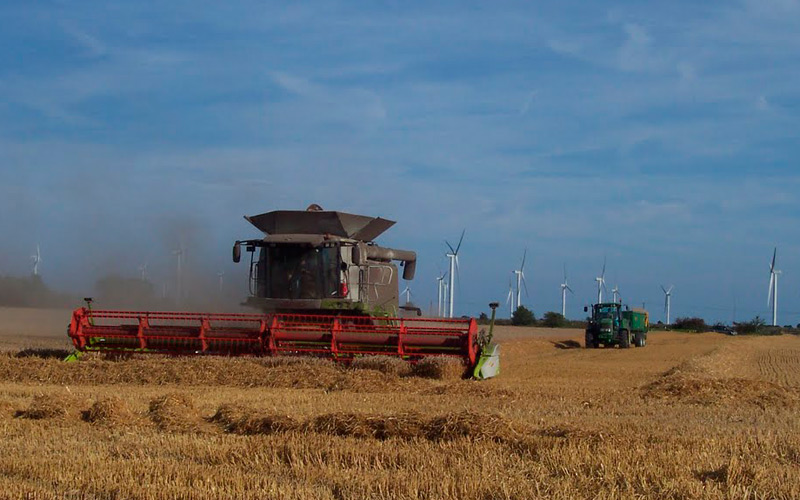Harvest has passed and bumper yields have been achieved in our area of Romney Marsh; yields that other parts of the country, or world, would only dream of growing. Hundred of years of this area being under the sea, followed by decades with sheep grazing the marsh, have all contributed towards the huge fertility of the soil.
At Lamb Farm we have managed to achieve our best average wheat yield of 4.5 tonnes per acre and luckily it has all passed the rigorous tests to be suitable to use as milling wheat. The downside was that it was harvested in less than ideal weather conditions and now sits in rented storage being expensively dried while the price is dropping daily.
In theory, each tonne of milling wheat makes 1,538 loaves of bread, with the UK consuming 12 million loaves each day. Our pile of wheat might look excessive in the shed but the reality is that it wouldn’t be enough for even one day’s breakfast for the UK.
Although the price of wheat is at a historic four-year low, the supermarkets never appear to lower the price of bread – but quickly announce rises when the trend reverses, even though the wheat value is less than 10p in each loaf !
With the wheat harvested and the straw gathered ready to be used for bedding for our Sussex cattle in the winter, the fields turn from a golden yellow back to brown as they are cultivated ready for the next crop. The crops that have been planted are beginning to look for some moisture, so the rain we didn’t want at harvest would be welcome now.
Historically, farmers have been very independent people when it comes to running their businesses. That is slowly changing, with many now sharing labour and machines between farms to be more cost efficient.
The Scots, on the other hand, appear to want to become independent and I can’t help thinking that they could be alienating nearly half the country with the result looking so close. It’s hard enough farming on the border of two counties with the different rules regarding TB testing of cattle and animal movements, but this may look easy in comparison with farming in two separate countries, a reality that several farmers could soon to be facing.
So, why are the Scots allowed to vote for independence, yet the rest of the UK aren’t given the vote to see if we want Scotland to stay? I would imagine the No vote on that one would win by a clear majority.
* Simon Wright is a farmer at East Guldeford where he and his wife Anne also run a holiday cottages business. Click here to visit their website
Photo Simon Wright



